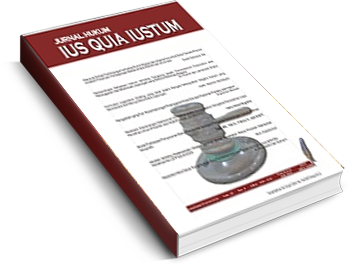Main Article Content
Abstract
Fair trials are universal principles included in various international human rights instruments, procedural law and professional codes of conduct that guide judges in analyzing, hearing and deciding cases. Identifying these isntruments enables us to assess the presence or absence of a fair trial. On this basis, the researcher formulates the research problems in the study as follows: first, what is the tendency of violation of the Code and the Judicial Code of Conduct (KE PPH)? Second, what is the tendency of the recommended sanction and sentence for the period of 9 (nine) years of KY (2005-2014)? This research is classified as non doctrinal legal research with socio-legal approach. The study concluded that: first, for the first five-year period, there are no significant increasing trend of case reports, while during the second five years there was a significant raise of case report. Meanwhile, the most region with most case reports is Jakarta Special Region. The most common type of violations of KE PPH is the unprofessional, undisciplined, unfair and dishonest behavior of the judge. Second, as with types of sanctions the moderate sanctions and medium sanctions are highly dominant. Meanwhile severe sanctions in the form of dishonorable discharge, dismissal with pension rights and unofficial sanction for 1-2 years is likely to increase from year to year.
Keywords
Article Details
Authors who publish with this journal agree to the following terms:
a. Authors retain copyright and grant the journal right of first publication with the work simultaneously licensed under a Creative Commons Attribution License that allows others to share the work with an acknowledgement of the work's authorship and initial publication in this journal.
b. Authors are able to enter into separate, additional contractual arrangements for the non-exclusive distribution of the journal's published version of the work (e.g., post it to an institutional repository or publish it in a book), with an acknowledgement of its initial publication in this journal.




